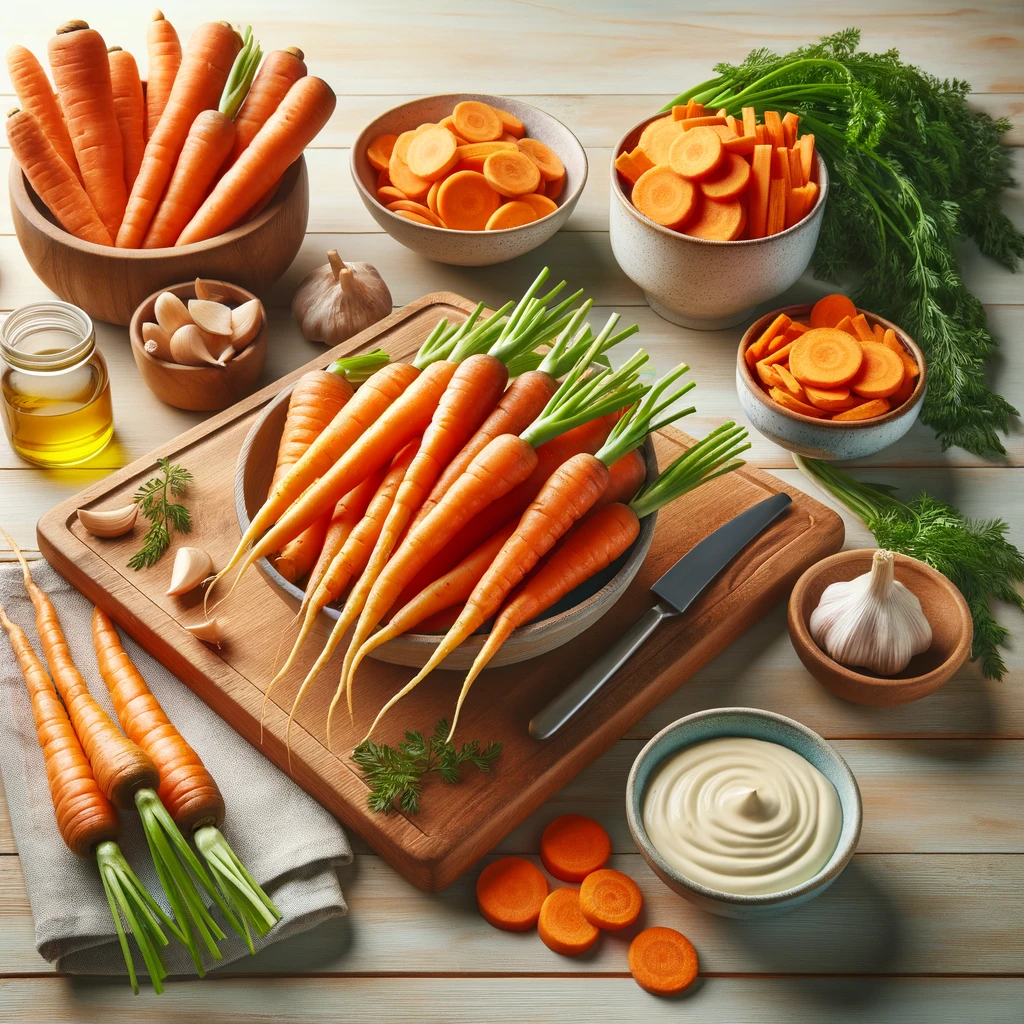reliable food sales
Carrots
Carrots
Couldn't load pickup availability
Carrots are crunchy, sweet root vegetables known for their vibrant orange color, although they can also be found in purple, red, yellow, and white varieties. Valued for their versatility, nutritional benefits, and delicious taste, carrots are a staple in many cuisines around the world.
What are Carrots? Carrots (Daucus carota) are root vegetables that grow underground and have feathery green tops. They are part of the Apiaceae family, which includes other vegetables like celery, parsley, and parsnips. Carrots can be eaten raw or cooked and are used in a variety of dishes, from salads and soups to baked goods and side dishes.
Nutritional Profile:
- Vitamins and Minerals: Carrots are an excellent source of vitamin A (in the form of beta-carotene), which is essential for good vision and immune function. They also contain vitamin K, vitamin C, potassium, and fiber.
- Antioxidants: Carrots are rich in antioxidants, particularly beta-carotene, which gives them their orange color and provides numerous health benefits.
- Low in Calories: Carrots are low in calories and can be a healthy addition to any diet, helping with weight management.
Uses in Culinary Applications:
- Raw: Carrots can be enjoyed raw as a snack, added to salads, or served with dips like hummus or ranch dressing. They add a satisfying crunch and sweet flavor.
- Cooking: Carrots are incredibly versatile and can be roasted, steamed, boiled, or sautéed. They make an excellent addition to soups, stews, casseroles, and stir-fries.
- Baking: Grated carrots are a key ingredient in carrot cake, muffins, and other baked goods, adding moisture, sweetness, and texture.
- Juicing: Fresh carrot juice is a nutritious and refreshing drink. Carrots can also be added to smoothies for a boost of vitamins and sweetness.
- Pickling: Pickled carrots are a tangy, crunchy addition to salads, sandwiches, and charcuterie boards.
- Pureeing: Carrots can be pureed into soups, baby food, and sauces, providing a creamy texture and rich flavor.
Health Benefits:
- Eye Health: Carrots are rich in beta-carotene, which the body converts into vitamin A. This nutrient is crucial for maintaining good vision and preventing night blindness.
- Immune Support: The vitamin C and antioxidants in carrots help boost the immune system and protect against infections.
- Digestive Health: The fiber in carrots promotes healthy digestion and regular bowel movements.
- Heart Health: Carrots contain potassium, which helps regulate blood pressure, and fiber, which supports heart health by lowering cholesterol levels.
- Skin Health: The antioxidants and vitamins in carrots contribute to healthy, glowing skin and may protect against UV damage.
How to Use:
- Raw: Wash and peel carrots, then cut them into sticks or rounds for snacking or salads.
- Roasting: Toss carrots with olive oil, salt, and pepper, then roast at 400°F (200°C) for 20-30 minutes, or until tender and caramelized.
- Steaming: Steam carrots until tender, then season with herbs and a touch of butter or olive oil.
- Boiling: Boil carrots until soft, then mash or puree them for soups and baby food.
- Sautéing: Sauté sliced carrots with garlic and herbs for a quick and flavorful side dish.
- Baking: Incorporate grated carrots into cakes, muffins, and breads for added moisture and sweetness.
Storage: Store fresh carrots in the refrigerator in a plastic bag or container to maintain their crispness. Keep them away from ethylene-producing fruits like apples and bananas, as this can cause them to spoil faster. Carrots can also be frozen after blanching for longer storage.
Carrots are a versatile and nutritious vegetable that adds color, flavor, and a wealth of health benefits to any meal. Their sweet taste, crunchy texture, and adaptability in both raw and cooked forms make them a favorite in kitchens around the world.
Share



